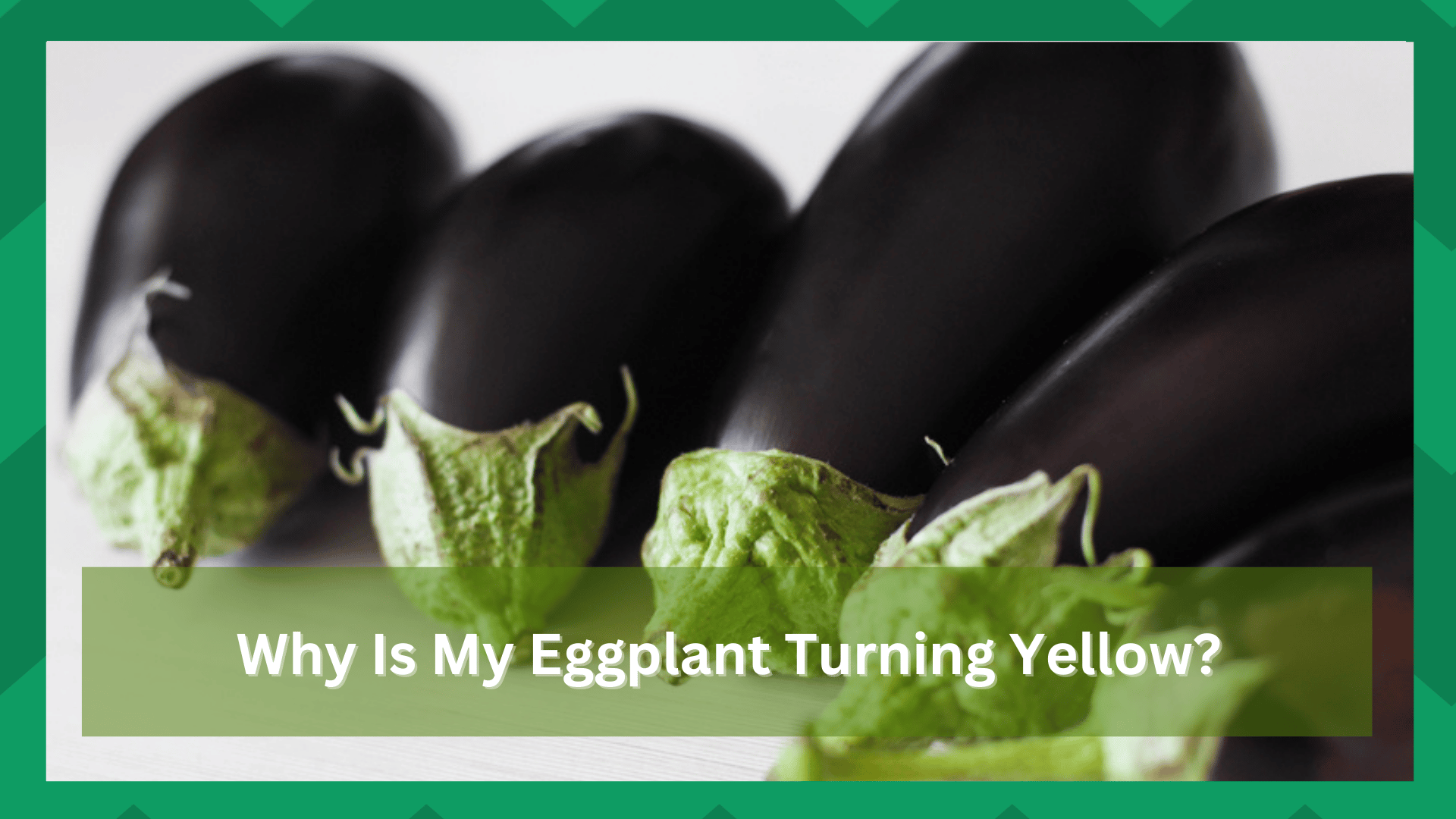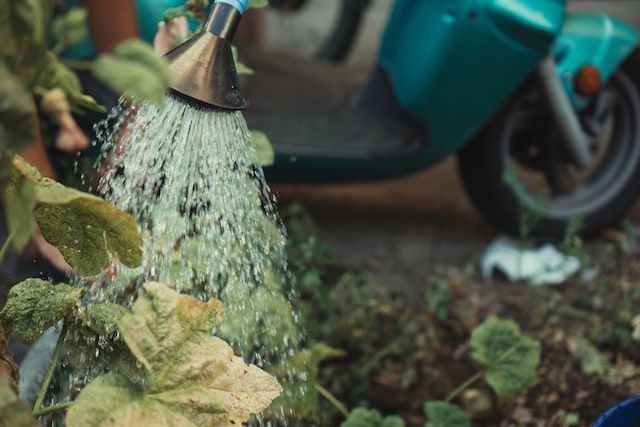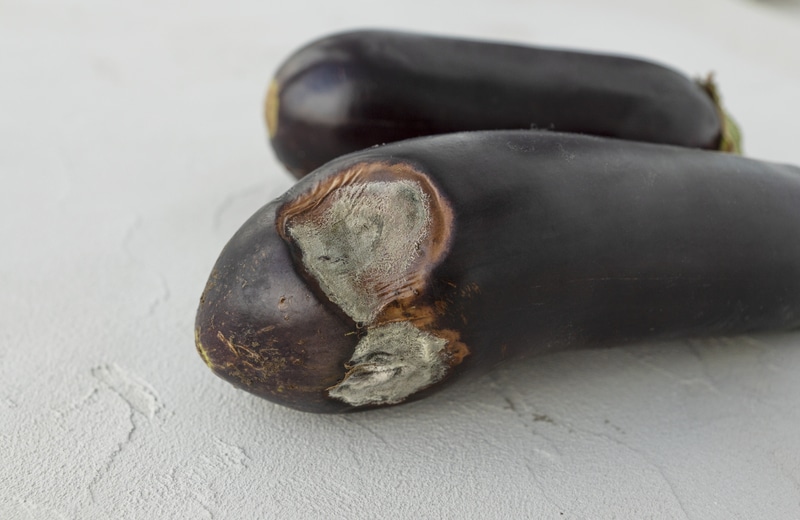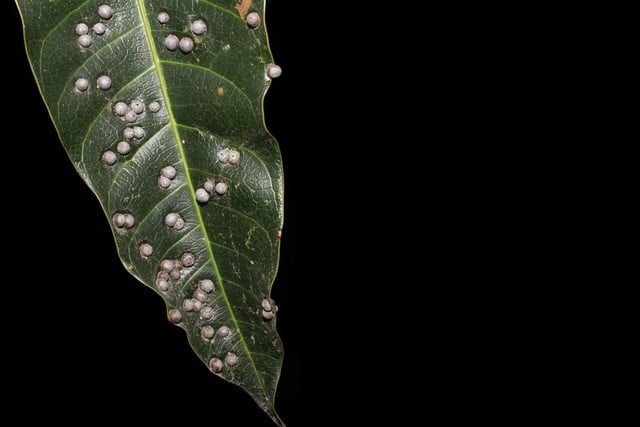
Eggplants, also known as Aubergine, are species from the family of nightshade plants; these plants are quite low maintenance which is why many beginners try growing them.
This can be amazing, but you can also run into many problems with your harvest.
Recently, some people have asked, “Why is my eggplant turning yellow?”. If you have the same query, this article will be helpful.
Eggplant Turning Yellow
1. Harvesting The Plant on Time
When growing vegetables like eggplants in your garden, there are several things that people should keep in mind.
This includes caring for the plant and understanding when it is ready to harvest. The color of your vegetables turning yellow usually indicates that they have gone long past their harvest time.
This can be unpleasant, but you should note that vegetables are safe to consume.
The only major problem is that the taste and nutrients in the eggplants are lost once they start changing their color.
Keeping the above information in mind, the issue can be avoided if you harvest this on time. This is why you should learn when the eggplants in your garden are ripe enough to be taken off.
Simply observing the vegetables is a great way of telling if they are still growing. The colour on them should get a uniform purple or brown, indicating that they can be harvested.
People can also try squishing the vegetable, which should have a tough, woody texture on its outer layer. The outside of the vegetable also becomes bitter and inedible once it is ripe enough.
The only reason why someone will want their eggplants to overripen is if they want to take seeds that can be planted the next year.
These are annual vegetables, so planting seeds every year is important. The best way to get the seeds is by harvesting yellow eggplants instead of ripe ones.
2. Watering The Plant
The most common reason for the yellow colour on eggplants is that they have overripened.
However, people should also understand that taking care of these vegetables is necessary.
When it comes to this, several factors should be kept under control. You should first check how much water your vegetables are getting.
This should be enough to keep the soil moist but low enough that the liquid does not collect inside the soil.
The best way to prevent excessive water is by having a drainage system. On the other hand, the among of sunlight your plant is getting can also play a huge role in how it will grow.
When it comes to this, people should keep the vegetables in a spot where they get the optimal levels of light every day.
Lower light can cause additional problems, so you should go to a spot where the vegetables can get long hours.
Keep in mind that too much sunlight can also cause problems for the plant, but they can easily be protected by installing shade over them.
3. Dealing With Yellow Eggplants
The steps mentioned above ensure you do not get yellow eggplants in your garden.
However, dealing with vegetables is necessary if you have already harvested them. You should avoid throwing them away even though their taste is inedible.
People can harvest the seeds from their vegetables and then sell them to a gardener.
If you want to plant the vegetable again the following year, you can store these seeds instead. Ensure you keep them in a location that stays dry throughout the year.
Are yellow eggplants safe for consumption?
Yes, yellow eggplants are safe for consumption. The color of the fruit does not impact its safety for human consumption; rather, it is the variety of the plant and how it was grown that affects its safety.
Yellow eggplants have a slightly different flavor than purple varieties, but they still offer many nutritional benefits.
Yellow eggplants are high in dietary fiber and antioxidants, aiding digestion, reducing inflammation, and protecting cells from damage.
They are also a good source of vitamins A, C, and K and minerals such as magnesium and potassium.
When choosing an eggplant for consumption, selecting one that is firm, glossy, and without blemishes or bruises is important.
Eggplants should also be stored in a cool, dry place away from sunlight to prevent spoiling too quickly.
When preparing eggplants for cooking, it can be helpful to cut off the stem end and remove any seeds that may have formed inside the fruit.
It is also important to note that eggplants can become bitter when cooked, so they may require additional seasoning or ingredients to add flavor.
Overall, yellow eggplants are safe for consumption and offer a wide range of nutritional benefits. They can be a tasty addition to any meal with proper selection and preparation.
How to prevent Eggplants from getting yellow?
Eggplants (Solanum melongena) are versatile and nutritious vegetables in many dishes. Unfortunately, they can quickly turn yellow if not handled properly.
To prevent this discoloration, taking some precautionary measures while harvesting and storing the eggplant is important.
When selecting an eggplant, look for one that is firm and dark purple.
Avoid eggplants with yellow spots or discoloration, as these indicate that the fruit has been exposed to too much sunlight. Select a younger eggplant, which will be more tender than an older one.
When harvesting an eggplant from your garden, wear gloves as the plant’s stems and leaves contain irritating sap.
Carefully cut off the stem with a sharp knife, leaving it attached. Don’t twist or pull on the eggplant, as this can cause bruising.
Keep the eggplant in a cool, dry place to prevent discoloration during storage. Wrap it in a paper towel and place it in the vegetable drawer of your refrigerator for up to five days.
Alternatively, you can store the eggplant at room temperature for a few days but keep it out of direct sunlight.
Eggplants quickly oxidize when to cut into pieces, so it’s best to use them immediately.
If you need to store the pieces, place them in a bowl of cold water mixed with a few drops of lemon juice or white vinegar. This will help slow down oxidation and keep the eggplant from turning yellow.
By following these tips, you can ensure that your eggplant remains fresh and vibrant. With proper care, it should last for several days and make a great addition to your favorite dishes.
Do eggplants get yellow due to premature ripening?
Eggplants can turn yellow due to premature ripening, though this is not the only cause. Sometimes, a yellowing eggplant may result from natural ageing or even cold temperatures.
If left on the vine too long, eggplants will become more yellow and eventually begin to soften. They may also become more bitter as they age.
Eggplants may also turn yellow due to nutrient deficiencies, such as a lack of nitrogen or magnesium in the soil where it is grown.
If the eggplant foliage appears yellow and wilted, this could be a sign that there is a nutritional deficiency and should be tested by a professional.
In very rare cases, too much nitrogen in the soil can also lead to yellowing eggplants.
In some cases, a yellow or discolored eggplant may be caused by environmental factors such as extreme temperatures or prolonged exposure to sunlight.
When exposed to prolonged heat, eggplants can become yellow and brittle before eventually wilting and becoming unappetizing.
To prevent this, eggplants should be grown in the shade and protected from direct sunlight when temperatures are too hot.
It is also possible for the eggplant to turn yellow due to a fungal or bacterial infection.
If the leaves of a plant appear wilted and yellow, it may be a sign of bacterial or fungal infection, which should be treated to prevent the spread of disease.
In conclusion, eggplants can turn yellow due to premature ripening, but this is not the only cause.
Other factors, such as nutrient deficiencies and environmental conditions, can also lead to yellowing and discoloration in eggplants.
To help prevent this, gardeners should test the soil for nutrient deficiencies and provide proper shade and protection from extreme temperatures.
If a bacterial or fungal infection is present, it should be treated as soon as possible. Proper care and attention allow eggplants to remain healthy and tasty when harvested.
Concluding Thoughts:
Eggplants are nutritious and delicious vegetables that can be enjoyed year-round. With proper care, they will remain fresh and vibrant for several days.
To ensure this, selecting younger eggplants with no signs of discoloration is important, storing them in the refrigerator or at room temperature away from direct sunlight and using them quickly to avoid oxidation.
Additionally, gardeners should test soil for nutrient deficiencies and take steps to protect plants from extreme temperatures and fungal or bacterial infections.
Following these tips will help ensure that your eggplant remains fresh and tasty for many meals ahead.





